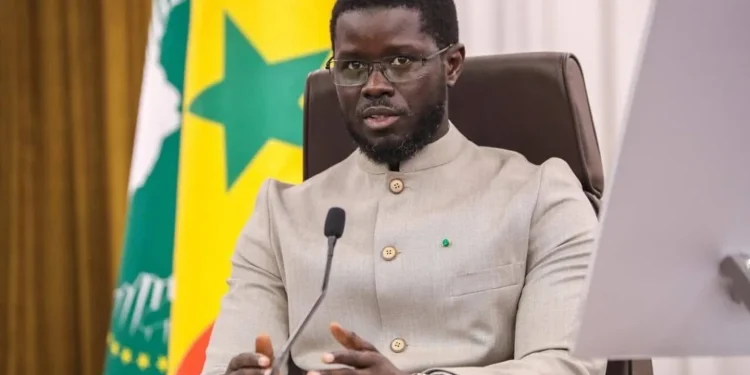IMF, Senegal Make Headway on New Program Talks; Economic Growth Projected at 7.9% in 2025
A team from the International Monetary Fund (IMF), led by Edward Gemayel, IMF Mission Chief for Senegal, concluded a two-week visit to Dakar from October 22 to November 6, 2025, aimed at advancing discussions on a new IMF-supported program and reviewing progress on corrective measures related to the country’s hidden debt.
In a statement at the end of the mission, Mr. Gemayel noted that talks with the Senegalese authorities were “constructive,” with significant progress made toward establishing the foundation for a new program. Discussions focused on fiscal sustainability, debt management, and governance reforms, which remain central to Senegal’s medium-term economic agenda.
“This mission has provided a solid basis for moving forward, and we look forward to continuing our dialogue in the coming weeks to finalize agreement on the remaining policies and reforms,” stated Edward Gemayel, IMF Mission Chief for Senegal
According to the Fund, Senegal’s economy remains resilient despite global headwinds, buoyed by the first full year of oil and gas production and a recovery in agriculture. The IMF projects real GDP growth at 7.9% in 2025, with non-hydrocarbon growth around 3.4% and inflation averaging 1.4%.
Fiscal consolidation remains a key focus. The overall deficit is expected to narrow significantly from 13.4% of GDP in 2024 to 7.8% in 2025, supported by targeted spending cuts and improved revenue mobilization. The 2026 Budget Law, currently under review, aims to reduce the deficit further to 5.4% of GDP, anchored by new tax measures on gambling, mobile transfers, and land transactions, alongside a gradual phasing-out of tax exemptions.
However, the IMF cautioned that ambitious revenue projections could pose risks to budget credibility, emphasizing the importance of realistic assumptions and protection of high-impact investments and priority social spending.
On the debt front, the Fund highlighted persistent debt vulnerabilities, with total public sector debt estimated at 132% of GDP by end-2024, including 4% in domestic expenditure arrears pending audit verification. The authorities are implementing active debt-management operations to mitigate risks and strengthen fiscal control.
Mr. Gemayel commended progress on corrective actions following the hidden debt episode, citing improved debt data transparency but urging continued efforts to centralize debt management functions and complete the ongoing reform agenda.
The mission also underscored the need for sustained reforms in governance, anti-corruption, and pro-growth fiscal policies to reinforce investor confidence and support durable growth.
During the visit, the IMF delegation met with President Bassirou Diomaye Diakhar Faye, Prime Minister Ousmane Sonko, and several senior government officials, including Finance Minister Cheikh Diba, Economy Minister Abdourahmane Sarr, and BCEAO Governor Jean-Claude Kassi Brou, as well as representatives of development partners and other stakeholders.








